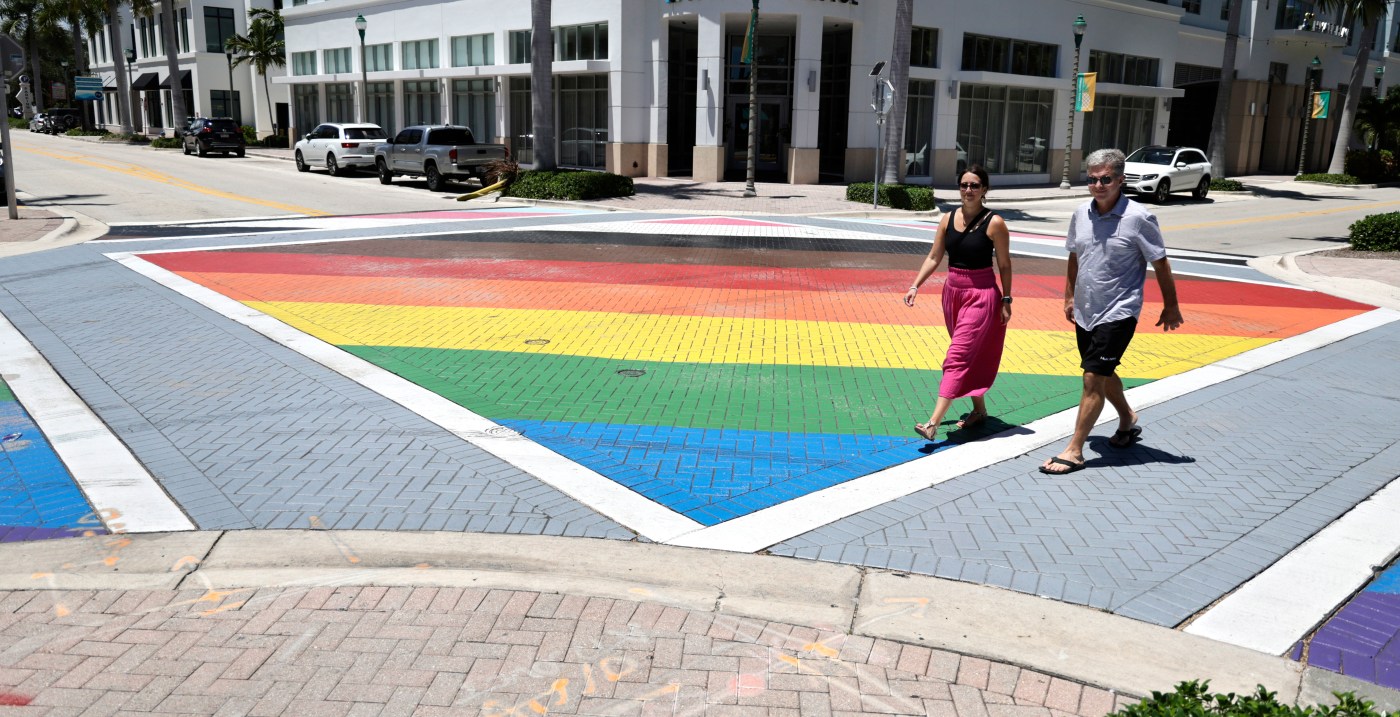Residents of Delray Beach, Florida, are rallying to protect a rainbow crosswalk that symbolizes inclusion and diversity, following Governor Ron DeSantis‘s directive to remove it. At a city meeting, Marcie Hall, a 67-year-old veteran and local advocate, expressed her emotional connection to the crosswalk, stating, “Marginalized people sometimes need a symbol to show they matter.”
The crosswalk has become a focal point of contention between local officials and the state government. DeSantis has threatened to deny the city approximately $60.3 million in state funds, earmarked for crucial infrastructure projects, unless the rainbow crosswalk is erased. Hall and other residents joined city officials in voicing their concerns during a public hearing on August 19.
Delray Beach’s leaders have decided to challenge the state’s removal order by requesting a hearing with the Florida Department of Transportation (FDOT) scheduled for September 2, 2025, in Orlando. Despite the city’s efforts, many observers remain skeptical about the outcome, given that the state holds significant authority over such decisions.
FDOT has issued warnings to Delray, threatening to remove the painted crosswalk “by any appropriate method necessary without further notice” and bill the city for the costs. This follows a similar incident in Orlando, where the state removed a painted memorial for the Pulse nightclub shooting victims under the cover of night. Critics have denounced these actions as acts of vandalism and state-sanctioned extortion.
DeSantis has publicly stated, “We will not allow our state roads to be commandeered for political purposes,” reinforcing his administration’s stance against symbols that represent LGBTQ equality. His comments have triggered a backlash from local leaders and residents who view the removal as an attack on their values and autonomy.
In the face of state pressure, some municipalities, including Boynton Beach and West Palm Beach, have opted to comply with the state’s demands and remove their painted tributes to diversity. In contrast, Delray Beach and Key West are standing firm, advocating for their right to determine local governance and preserve cultural symbols.
During the public meeting, Delray Beach City Commissioner Rob Long emphasized the broader implications of this dispute. “It’s bigger than one intersection,” he asserted. “It’s about whether Delray governs itself, or whether Tallahassee can invade our streets, erase our culture, and dictate our future.”
The upcoming hearing will serve as a platform for Delray Beach to assert its principles against what many residents perceive as overreach by the state government. Hall poignantly remarked, “You can remove the paint. But that doesn’t erase what it represents.”
This conflict highlights an ongoing struggle for local autonomy in the face of state pressure, with residents of Delray Beach determined to stand up for their community’s values and rights. As the city prepares for the hearing, the outcome remains uncertain, but the commitment to fight for local representation is clear.
